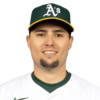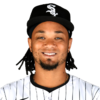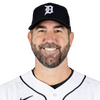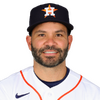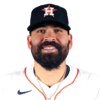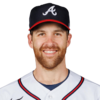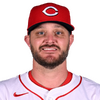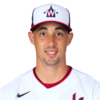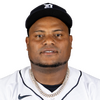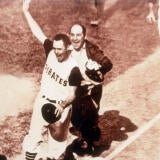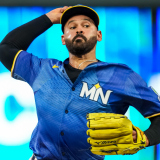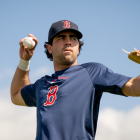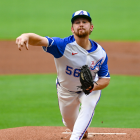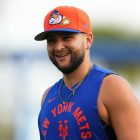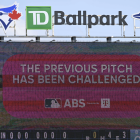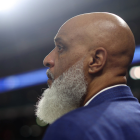
World Series 2019: How the Astros built their AL champion roster through trades, free agency and the draft
High draft picks and smart trades have the Astros back in the World Series.
HOUSTON -- For the second time in three seasons, the Houston Astros are heading to the World Series. The Astros clinched the 2019 American League pennant with a walk-off win over the Yankees in Game 6 of the ALCS. They will face the Nationals in the World Series beginning Tuesday -- stream all games via fuboTV (Try for free).
Like every team, the Astros were assembled through all sorts of different methods. No team is built exclusively through the draft, or trades, or free agency. It's not possible. Successful teams acquire talent through every avenue possible. Here is Houston's 2019 WAR breakdown via the Baseball Gauge:
• Trades: 22.0 WAR (3rd in MLB)
• Draft: 18.8 WAR (4th)
• Free Agency: 12.6 WAR (5th)
• Other: 8.3 WAR (2nd)
• International Free Agency: 5.9 WAR (5th)
The Astros have pilfered other teams in trades. They've also crushed it in the draft and made some shrewd free agent signings as well. Their international scouting team is among the best in baseball too. Let's take a deeper look at how the Astros built the roster that carried them to the 2019 World Series.
The draft
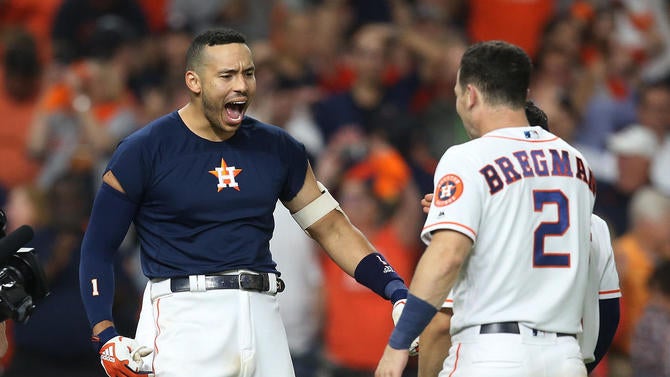
In a perfect world teams would draft and develop their entire 25-man roster and never spend money on free agents or give up players in trades. That world does not exist. Not even close. The draft remains the best (and most cost effective) way to acquire talent and the Astros have three impact first-round picks on their roster.
Had things gone according to plan, Alex Bregman might be a Colorado Rockie or Texas Ranger right now. The Astros used the No. 1 pick in the 2014 draft on California high school left-hander Brady Aiken, but they did not sign him after seeing something scary in his elbow during his pre-signing physical. Aiken was only the third No. 1 pick in draft history not to sign, joining Danny Goodwin (1971) and Tim Belcher (1983).
Teams that fail to sign their first round pick are given a compensation pick one selection later the next year. The Astros did not sign Aiken as the No. 1 pick in 2014 and received the No. 2 pick in 2015 as compensation. That's the pick they used to select Bregman, who quickly emerged as an MVP candidate. The Rockies held the original No. 2 pick (Brendan Rodgers) and the Rangers held the original No. 3 pick (Dillon Tate) before the Astros received the compensation pick. They would've had a shot at Bregman.
Oh, and in case you're wondering, the Diamondbacks passed on Bregman to select Dansby Swanson with the No. 1 pick in 2015. They traded him to the Braves in the ill-fated Shelby Miller trade six months later. Swanson was the consensus No. 1 prospect in the 2015 draft his junior year at Vanderbilt. Bregman was considered a future star while at LSU as well.
The Astros became the first team in baseball history to own the No. 1 pick in back-to-back-to-back drafts. They lost 324 games from 2011-13 to make that possible. And, amazingly, the Astros blew two of those No. 1 picks. Mark Appel was a bust as the No. 1 pick in 2013 -- he is already out of baseball -- and Aiken didn't sign as the No. 1 pick in 2014. Houston at least turned the compensation pick into Bregman.
The first of those three consecutive No. 1 picks was Carlos Correa, who drew comparisons to Troy Tulowitzki but was not the consensus No. 1 prospect in 2012. That was Byron Buxton. The Astros selected Correa, signed him to a below-slot bonus, and used the savings to sign righty Lance McCullers Jr. in the supplemental first round. Correa is the highest drafted player ever to come out of Puerto Rico (duh), and he was in the big leagues within three years.
It did not come easily for Josh James, a live-armed but erratic pitcher from a junior college player in Oklahoma. It wasn't until James was diagnosed with sleep apnea and treated in 2018 that he broke out as a prospect. Better rest allowed for better training, and his fastball jumped from the low-90s up into the 98-100 mph range. Any team could have taken James in the Rule 5 Draft in December 2017. He went unpicked, then had his breakout season the following year.
George Springer was a gift left to the current ownership group and front office regime. He was drafted in 2011, five months before former owner Drayton McLane sold the team to Jim Crane, and former GM Ed Wade was replaced by Jeff Luhnow. Springer was a very toolsy but somewhat raw prospect at UConn with obvious athleticism and power, but also some strikeout issues. He worked hard to correct those as a professional and is now among the game's most impactful leadoff hitters.
The Astros had two of the top five picks in the 2015 draft. They had the No. 2 pick (Bregman) as compensation for failing to sign Aiken, and they had the No. 5 pick, their natural first rounder. Kyle Tucker, a Tampa native, was one of the top high school hitters in the draft class despite an unorthodox swing, and it didn't take him long to develop into one of the game's top prospects. Tucker is still trying to carve out a clear role with the Astros and was on the ALCS roster as a bench player.
Trades
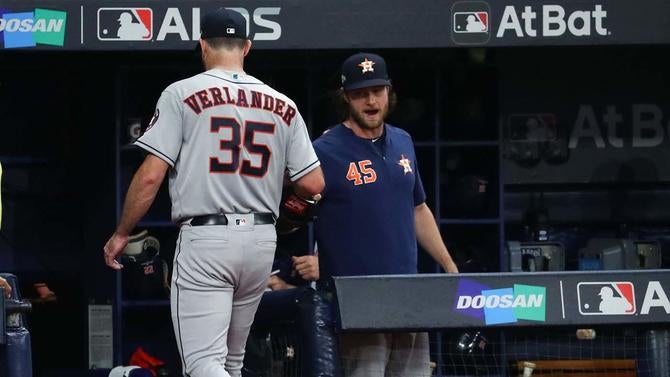
Has any team made more impact trades the last two or three years than the Astros? They've done an exceptional job identifying talented players in other organizations, acquiring them on the cheap, and developing them into better players. Houston received more production through trades this year than any other means, and the team's entire ALCS rotation was acquired via trade.
It's not often a player gets traded before playing in his first professional game, but that's exactly what happened with Yordan Alvarez. The Dodgers gave him a $2 million signing bonus after he left Cuba in June 2015, and six weeks later -- six weeks! -- they traded him to the Astros for Josh Fields. Alvarez may not have a defined position given his defensive issues, but he grew into the power potential he showed as an amateur, and should win the Rookie of the Year award unanimously this year.
When it's all said and done, there's a decent chance the Pirates will be on the wrong end of the two most lopsided trades of the last 10-15 years, and they were made within six months of each other. Knowing they wouldn't be able to sign Gerrit Cole long-term, they shipped him to the Astros in the weeks leading up to spring training 2018. The full trade:
- Astros get: Cole
- Pirates get: Michael Feliz, Jason Martin, Colin Moran, Joe Musgrove
Cole left the Pirates and immediately blossomed into the ace they hoped he would become after making him the No. 1 pick in the 2011 draft. All it took was a little tweak in pitch selection and usage. Cole has been arguably the best pitcher in baseball the last two years and he'll finish no worse than second in the Cy Young voting this year. Moran and Musgrove are at best complementary players for a contending team, which of course the Pirates are not.
And because trading Cole for that package isn't bad enough, the Pirates turned around a shipped Tyler Glasnow and Austin Meadows (and top prospect Shane Baz!) to the Rays for Chris Archer at the 2018 trade deadline to fill the void left by Cole in the rotation. Getting Cole was a spectacular trade for the Astros. The Pirates made two catastrophic moves in the span of six months and set the franchise back years.
The Astros needed a utility infielder this past offseason and had some pitching to spare, so they sent righty Trent Thornton to the Blue Jays for Aledmys Diaz. Houston was not planning to add Thornton to the 40-man roster to protect him from the Rule 5 Draft, so, rather than risk losing him for nothing, the Astros traded him. Diaz had a very productive regular season around injuries and is currently Houston's go-to pinch-hitting option against lefties. Thornton spent most of 2019 in Toronto's rotation.
Dallas Keuchel and Charlie Morton left as free agents and McCullers was lost to Tommy John surgery, and the plan to replace them with James and Collin McHugh did not go well. The Astros needed another starter at the trade deadline and that led them to Zack Greinke, whose contract the D-Backs were happy to unload. The trade terms:
- Astros get: Greinke and $26 million
- D-Backs get: Seth Beer, J.B. Bukauskas, Corbin Martin, Josh Rojas
The money included in the trade turns Greinke into a $22 million player in 2020 and 2021, or thereabouts. The Astros gave up three of their best prospects (Beer, Bukauskas, Martin) and a solid potential role player to not only get a third ace for their 2019 postseason run, but also provide insurance in case Cole leaves as a free agent after the season.
Martin Maldonado was traded twice in the span of two weeks this season. He signed a cheap one-year contract with the Royals over the winter, and they sent him to the Cubs for Mike Montgomery on July 15. Two weeks later, the Cubs sent him to the Astros for Tony Kemp. It was the second straight season the Astros acquired Maldonado at the trade deadline -- they got him from the Angels last summer.
Jake Marisnick has been traded twice in his career and those two trades involved 16 players besides his himself, plus a draft pick. He went from the Blue Jays to the Marlins in the massive Jose Reyes/Mark Buehrle trade years ago, then Miami sent him to the Astros at the 2014 trade deadline. The full trade:
- Astros get: Marisnick, Moran, Francis Martes, 2015 competitive balance pick
- Marlins get: Jarred Cosart, Enrique Hernandez, Austin Wates
Marisnick is a quality fourth outfielder, Moran was used to get Cole, and Martes blossomed into a top pitching prospect before being derailed by injuries. That competitive balance draft pick was used to select Daz Cameron, Mike's son, and we'll have more on him in just a second. This has been a sneaky excellent trade for the Astros.
I'm not sure there's been a worse-looking trade in recent baseball history. The optics of it were awful, nevermind the morals. The Astros acquired Roberto Osuna while he was serving a 75-game suspension under MLB's domestic violence policy. Not after he served the suspension. While he was serving the suspension. Here's what GM Jeff Luhnow said following the trade:
"We did a lot of work on this deal over the course of not just the past few days, but past weeks. We are confident the player understands the magnitude of what he's been charged with and is remorseful about what has occurred and proactively has taken steps to address any of his past behavior.
"We do feel like the Houston Astros and the city of Houston will provide Roberto with an environment that will enable him to get a fresh start and get back to focusing on pitching and hopefully help us win going forward. And also allow him to continue down the path he is on right now towards putting what happened behind him and making sure that nothing like this ever happens like this again in the future, which we all hope is the right outcome."
Osuna is very good, obviously, but acquiring a player serving a domestic violence suspension was and still is a terrible look for a team coming off a World Series championship at the time. Houston sent out of favor closer Ken Giles and two young pitchers (David Paulino and Hector Perez) to Toronto in the trade.
Not many players have been with the Astros as long as Brad Peacock. The sinker/slider right-hander came over from the Athletics in the Jed Lowrie trade -- the first Lowrie trade, I should say, because twice the Astros traded him to the A's -- and it wasn't until 2017 that he really settled into his current swingman role. Peacock, Chris Carter, and Max Stassi for Lowrie and Fernando Rodriguez. That was the full trade.
It was pretty easy to connect Ryan Pressly to the Astros at the 2018 trade deadline. He was having a solid season with the Twins, and also featured the elite spin rates the Astros crave. Houston sent prospects Jorge Alcala and Gilberto Celestino to Minnesota and immediately helped Pressly take his game to the next level with some pitch usage tweaks. It was very similar to the Cole trade, albeit on a smaller scale.
The Justin Verlander trade was the moment the Tigers committed to their rebuild. It was sorely needed, but Verlander is a franchise icon, and those guys are tough to move. Detroit held him at the 2017 deadline and Verlander went unclaimed on trade waivers in August. The Astros didn't even claim him. Once he cleared waivers, Verlander could be dealt anywhere with no restrictions.
It wasn't until moments before the 11:59 p.m. ET postseason-eligibility deadline on Aug. 31 that the trade was finalized. The Astros sent Cameron and prospects Franklin Perez and Jake Rogers to the Tigers for Verlander and a player to be named later. Perez and Cameron were the prized pieces, though neither currently ranks among MLB.com's top 100 prospects.
As they did with Cole and Pressly, the Astros helped Verlander improve his game through pitch design, and he's carved out a second "ace" phase of his career in Houston. Verlander was a difference-maker during the 2017 World Series run and could win his second Cy Young this year, a decade after winning his first with the Tigers.
Free-agent signings
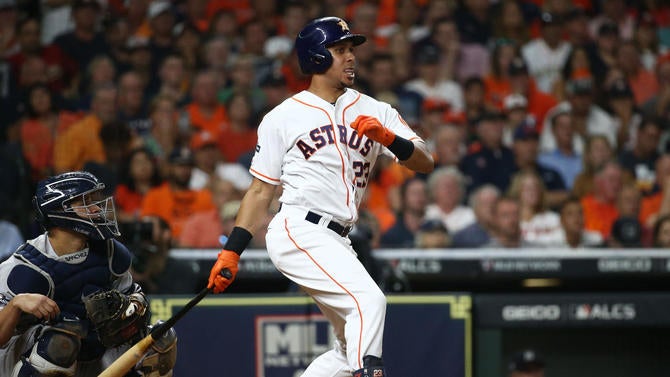
Generally speaking, free agency is the least efficient way to acquire talent in terms of cost vs. production. But, when you're a World Series contender like the Astros and you have roster holes (and gobs of money), sometimes throwing cash at the problem is the best way to fix things. Several Astros players were acquired on the open market.
The Astros go for sensible short-term signings over splashy big money deals, and that led them to former Indians slugger Michael Brantley. They gave the contact machine a nice little two-year contract and he rewarded them with an All-Star season. Brantley is Houston's regular left fielder and he allowed them to remain patient with Tucker, who had a 30/30 season in the minors.
Last winter the Astros dabbled in the J.T. Realmuto trade market, and rather than trade away Tucker or pitching prospect Forrest Whitley to the Marlins, they signed Robinson Chirinos to a low-cost one-year contract instead. He slugged 17 home runs and helped guide Verlander through a Cy Young caliber season as his personal catcher.
Josh Reddick never did get enough credit for being a complete player while with the Athletics. He hit for power, didn't strike out excessively, and played tremendous defense in right field. Reddick may not have been a star, but he was an underrated player with the A's. The Astros stole him away with a four-year contract three years ago and he has been a steady contributor from the bottom of the lineup.
Somewhat surprisingly, the Cubs non-tendered Hector Rondon rather than pay him a projected arbitration salary north of $6 million in 2018. Here was their team leader in saves during the 2016 World Series season and was generally a rock solid relief option. The Astros pounced quickly and signed him to a two-year contract. Rondon's continued to be solid with Houston, and he even saved 15 games before the Osuna trade last year.
An offseason Achilles injury sabotaged Joe Smith's 2019 season, though he is healthy now, and is again terrorizing right-handed batters in the late innings. He's spent parts of 13 seasons in the big leagues as a high-leverage right-on-right matchup option, and gives manager A.J. Hinch a versatile -- and veteran -- presence late in the game.
International free agency
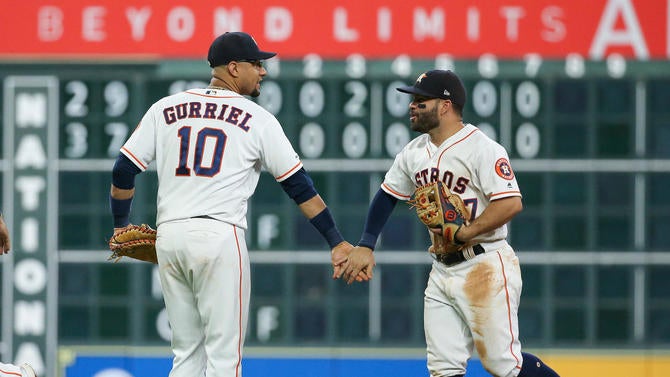
There are two ways for teams to acquire amateur talent: the draft and international free agency. Under Luhnow, the Astros have scouted Latin America very well, allowing them to produce quality players to use on their roster and as trade chips. The fruit of that labor is evident up and down their 2019 roster.
Few teams are as good at finding lower-profile pitching prospects in Latin America as the Astros. Bryan Abreu was throwing in the mid-80s when he signed as a 16-year-old out of the Dominican Republic, but he now sits in the mid-90s and features a wipeout slider. Like most Astros pitchers, he shows very high spin rates. Abreu was a late-season call-up this year and figures to serve a more prominent role next season.
By now, Jose Altuve's story is well known. The Astros originally cut him from a tryout camp in his native Venezuela back in 2007, and it wasn't until he returned for a second tryout a few weeks later that the team offered him a contract. Altuve was never a highly regarded prospect -- he never once appeared on a top 100 prospects list -- and, even after making his MLB debut, he was doubted because of his size. The 2017 AL MVP and 2019 ALCS MVP is a true impact player and fan favorite.
For the longest time it seemed Yuli Gurriel would never make it to MLB. He was the best player in Cuba for more than a decade -- in his final season in Cuba, he hit .500/.589/.874 with 38 walks and only three strikeouts in 49 games -- but he never showed much desire to defect. He finally did defect in 2016, along with his younger brother, Lourdes Gurriel Jr. of the Blue Jays. Soon thereafter the Astros gave Gurriel a guaranteed five-year major league contract. He hasn't replicated his Cuban league numbers in MLB -- no one expected him to do that -- though he has been extremely productive with Houston.
Like Abreu, Jose Urquidy was a lower-profile international free agent signing out of the Mexico. He stands out more for his deep arsenal and pitching know-how than blow you away stuff, but the stuff is very good. Urquidy is essentially Houston's fourth starter this postseason and the expectation is he will assume an even larger role next season.
Waivers
It's not often a waiver claim becomes a key contributor, but the waiver wire is loaded with useful depth players each year. Spare bullpen arms, bench players, guys like that. The Astros had one waiver claim on their ALCS roster.
I'm not sure there's been a more impactful straight waiver claim (i.e. not a trade waiver deal) in baseball the last five years than Will Harris. The Astros grabbed him from the D-Backs and he's since given the team close to 300 innings with a sub-2.40 ERA. Harris has been Osuna's primary setup man this year. Hard to get more out of a waiver claim than that.
Other notables
Those 25 players above made up the Astros' roster for the ALCS. Several other players spent time with Houston this year -- in some cases they spent the entire season on the big league roster -- and helped get the club to the postseason, but are not expected to be on the World Series roster. Here are the Astros' remaining notables and how they were acquired.
In an effort to bolster their pitching depth at the trade deadline, the Astros acquired Joe Biagini in a four-player trade with the Blue Jays. All they had to give up was spare part outfielder Derek Fisher. Biagini allowed 13 runs in 14 2/3 innings with the Astros after the trade.
Chris Devenski was a player to be named later once upon a time. The Astros acquired him from the White Sox to complete the Brett Myers trade way back in 2012. An elite changeup and a bulldog mentality earned Devenski an All-Star Game selection in 2017, though he has struggled a bit the last two seasons.
Turning a waiver claim into a cheap and dependable MLB starter is quite the trick. The Astros claimed McHugh because they loved his spin rates and he's since given them over 750 innings with a sub-4.00 ERA. Elbow trouble dogged him this past season and also in 2017 as well. Still, getting that much production from a waiver claim is a big win for any organization.
A disastrous September saw Wade Miley go from No. 4 starter to ALCS spectator. He wasn't even on the ALCS roster. The veteran southpaw did give the Astros close to 170 innings with a sub-4.00 ERA, however, and it's hard to beat that production at that price. The ugly September (21 runs in 11 1/3 innings) really put a damper on an overall strong season.
Aaron Sanchez was part of that four-player trade with Biagini. It was Biagini, Sanchez, and a minor leaguer for Fisher. Sanchez was part of a combined no-hitter in his first start with the Astros, though shoulder surgery ended his season soon thereafter. He is expected to be part of Houston's rotation next year once he completes his rehab. Sanchez may not return until midseason.
In the late rounds of the draft, teams look for carrying tools, and Myles Straw had one in his top of the line speed. He's a great runner who knows his game and slaps the ball around. Straw is also a great defensive center fielder who has even started to dabble at shortstop. He has yet to carve out a steady role with the Astros, but should settle in as a bench player soon.
When it comes to amateur players in the Dominican Republic, 21 is ancient. Most players sign at 16 or 17, maybe 18 if they're a late-bloomer. But 21? It doesn't happen often, and even when it does, rarely does the player make it to the big leagues. Framber Valdez is one of the exceptions. The husky lefty with cartoon-ish breaking balls reached the big leagues as a 24-year-old last season and spent some time in the rotation in 2019.















